Students explore career paths through real-world work experiences.
Columbia College | Columbia University in the City of New York
This website uses cookies as well as similar tools and technologies to understand visitors’ experiences. By continuing to use this website, you consent to Columbia University’s usage of cookies and similar technologies, in accordance with the Columbia University Website Cookie Notice.
Students explore career paths through real-world work experiences.
Summer was a productive and enlightening season for many Columbia College students, including David Dai ’17, who investigated potentially life-changing treatments for Parkinson’s disease at the Columbia University Medical Center, and Camille Sanches ’18, a human rights major who delved into an issue of national prominence at the Police Reform Organizing Project (PROP), a nonprofit that exposes abusive and discriminatory practices in the NYPD.

David Dai ’17
For much of his time at the College, Dai, a neuroscience major, has contributed to studies at the CUMC Department of Pathology and Cell Biology aimed at finding drugs capable of slowing the progression of Parkinson’s.The summer break from classes gave him time to run experiments that involved a technique known as a Western blot, which requires constant monitoring. Dai says his recent research experience “sharpened my resolve to go into these specific fields.” He plans to go to medical school and specialize in neurology and neurosurgery.
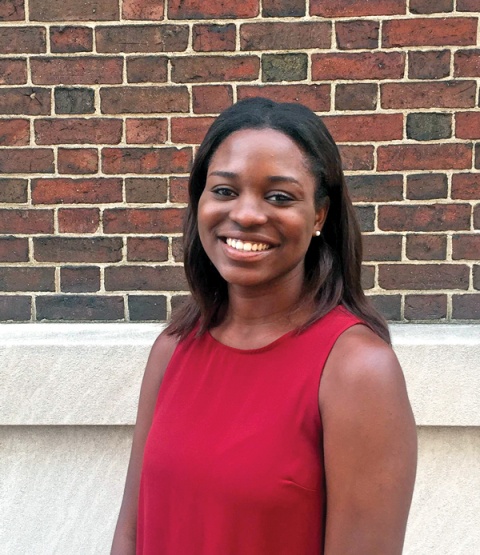
Camille Sanches ’18
Several times a week, while Dai observed changes in neurons through a microscope in a pristine laboratory, Sanches traveled to criminal arraignment courts around New York City. She sat in on proceedings and spoke with attorneys and defendants as part of PROP’s Court Monitoring Project, which tracks NYPD practices on the ground and assesses the repercussions of being charged with low-level, non-violent offenses. At PROP, Sanches also conducted research for a history of the NYPD. “I learned a lot more about how to address an issue and study it,” says Sanches. “Talking with high schoolers in the Bronx who have been arrested or mistreated was definitely eye-opening and got me more connected.” Like Dai and Sanches, more and more College students are using their summer break to explore academic interests, work with faculty, gain exposure to international communities and develop skills that will help them prepare for life after Class Day. Such opportunities go beyond traditional pre-professional training and extend the College experience in ways that are attractive to employers and graduate schools in an increasingly competitive, globalized society.
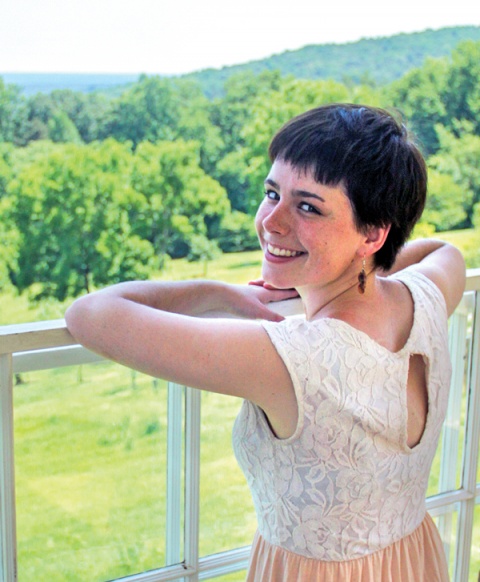
Jessica Swanson ’17
Swanson, also a human rights major, was eager to be in the capital, “near all the political excitement” and to see how policy relates to the work that nonprofits do. She was placed in CDF’s communications department, where she designed promotional graphics for the Insure All Children campaign, which helps school districts identify uninsured students and enroll them in health insurance. Swanson acquired design software skills and developed a better understanding of how nonprofits reach their audiences. “From the communications end, it’s all about reframing, reediting and repackaging things so that they make sense to the greater public,” she says.
Many of these adventures begin at the Office of Global Programs and Fellowships (OGP) or the Center for Career Education (CCE), which maintains an online database of jobs and internships called LionSHARE that is available exclusively to Columbia students and alumni. Each year, more than 400 College students find summer internships, global opportunities and fellowships through Columbia-sponsored programs. Examples include the Alumni-Sponsored Student Internship Program (CCASSIP) and Columbia Experience Overseas (CEO), which offers summer internships in Amman, Beijing, Hong Kong, London, Mumbai, Seoul, Shanghai and Singapore, as well as more than a dozen Columbia study abroad programs around the world.
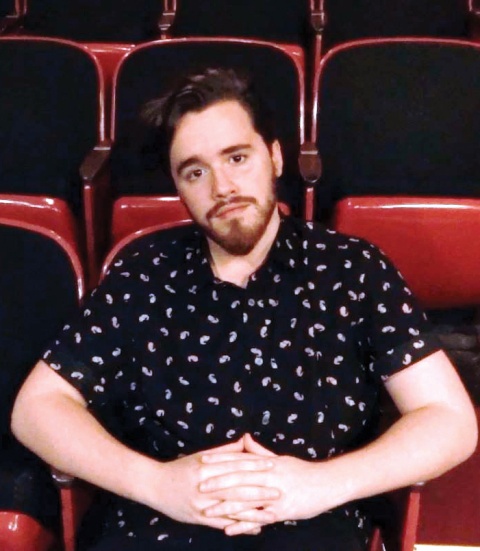
Nathaniel Jameson ’18
This summer, CCASSIP enabled Nathaniel Jameson ’18, who is majoring in film studies with a concentration in anthropology, to intern at The Tank, a Manhattan-based nonprofit that offers free performance and rehearsal space for emerging artists and where sponsor Rosalind Grush ’08 is co-artistic director. He helped manage the organization’s email, reviewed artist submissions, researched grants, collected tickets and even sold snacks during shows. “I most valued seeing art at work,” says Jameson, an aspiring actor and playwright, adding that the experience helped him consider the best ways to market and monetize his creative work.
Kavita Sharma, dean of CCE, notes such pursuits “give our students the opportunity to use and further develop skills they’re gaining in the classroom, including written and verbal communication; planning, organizing and prioritizing work; flexibility and adaptability; working on a team; decision making and problem solving; obtaining and processing information; and, in our international programs, cross-cultural skills.”
Dean James J. Valentini sees the summer break as “an important time for Columbia College students, giving them the opportunity to apply skills gained through their Core courses and in their majors and to acquire real-world experiences that foster career exploration and prepare them for the future.” [Editor’s note: Please see “Message from the Dean,” for more on Valentini’s thoughts on summer experiences.] One of Valentini’s goals for the College’s $400 million Core to Commencement campaign — the first fundraising and engagement campaign dedicated exclusively to the College — is to provide a funded summer experience for every student in order to extend a student’s education beyond the classroom. The College already offers the Columbia College Alumni and Parent Internship Fund (APIF) and the Work Exemption Program (WEP), managed by CCE, which help students on financial aid cover the costs associated with unpaid or low-paying internships. Dai and Sanches received support from APIF and WEP in 2016, as did Jessica Swanson ’17 and Desmond Hanan ’19, who both spent the summer in Washington D.C., as interns at the Children’s Defense Fund (CDF) and the National Endowment for the Arts (NEA), respectively.
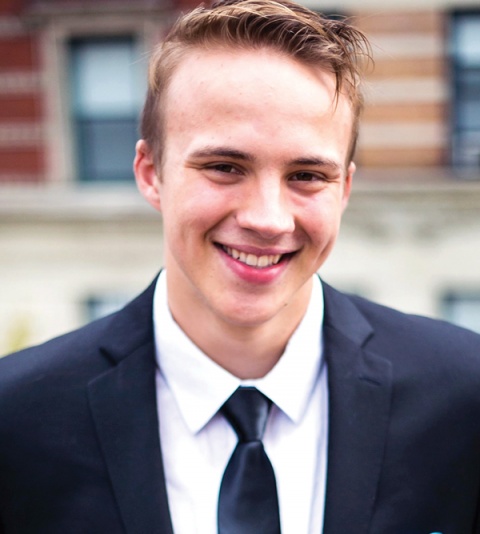
Desmond Hanan ’19
At the NEA, an independent agency of the federal government that supports and funds artistic projects, Hanan, who is pursuing a double major in drama and theater arts and biology, took on projects such as briefing chairman Jane Chu prior to the Tony Awards and reviewing grant applications. “Seeing what people look for in applications from the reviewer’s side of it is going to be very beneficial to me in any arts-related field,” he says.
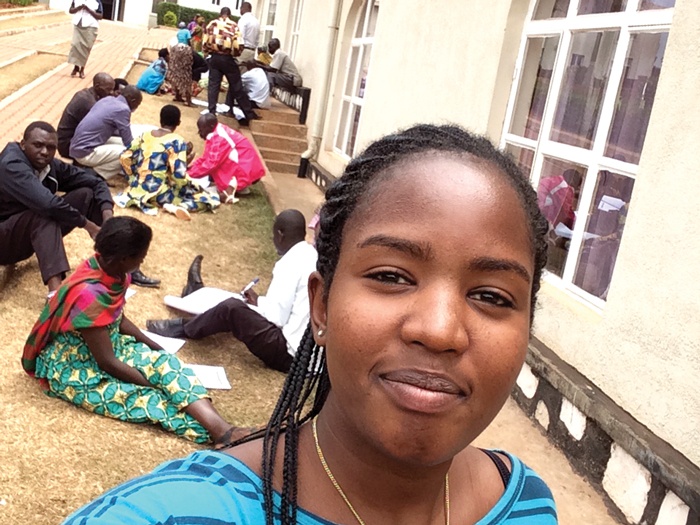
Diana Munyana ’19
Other students receive summer funding through the Columbia Undergraduate Scholars Program, which includes the John W. Kluge, John Jay and Global scholars. This summer, Diana Munyana ’19, a Kluge Scholar considering majors in environmental science, sustainable development and economics, was awarded a Columbia Undergraduate Scholars Program Practicum & Research Assistantship, which provides partial financial support for scholars participating in summer internships or research assistantships.
Munyana used the funding to cover expenses while she traveled to rural areas of her native Rwanda as an intern with the European Cooperative for Rural Development. The nonprofit works with farmers to develop sustainable strategies for growing crops, in order to improve the economy of their rural communities. Munyana helped train maize farmers on how to better run their cooperatives — business arrangements in which farmers pool certain resources. She collected data about production costs and spoke with farmers to learn more about the impact of cooperatives on their lives and livelihoods. “It was a great opportunity to see that type of work on the ground and get an overview of how projects are run by NGOs,” says Munyana, who also learned “how important it is to connect with the people you’re helping.”
College students also are eligible for Presidential Global Fellowships, a program for rising sophomores launched in 2014 with a grant from President Lee C. Bollinger that covers the cost of a program, as well as airfare and living expenses, for study at or near one of the eight Columbia Global Centers. Of the 18 Presidential Global Fellows in 2016, 10 were College students, including Dafne Murillo ’19, who plans to major in economics and concentrate in Latin American studies.
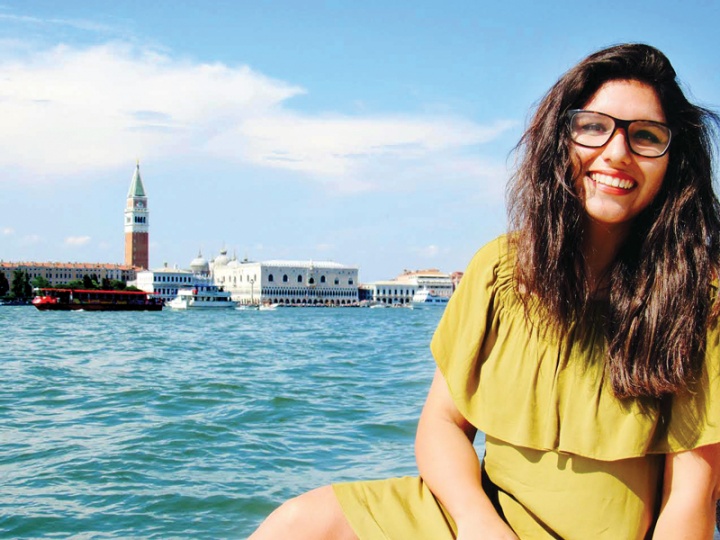
Dafne Murillo ’19
Murillo, who hails from Peru, chose the Columbia Summer Program in Venice because she wanted to dive into a subject outside her major. During her six weeks in Venice, she took art history courses and visited historic churches and other sites to see some of the works she was studying in person. For Murillo, who hopes to eventually promote economic development in Peru, living in Venice was a catalyst for considering how to build a profitable, sustainable tourism industry that helps local communities — ideas that will help her approach issues in her homeland.
“The Presidential Global Fellowship put me in a position in which I had to continually think about cultural connections,” she says. “I could see links between tourism in Venice and tourism in Peru.That was interesting because I could see how tourism in Venice affects everything [in the city], like how restaurants are run and how transportation works.”
Students are eligible for Presidential Global Fellowships, a program for rising sophomores that covers the cost of a program, airfare and living expenses at or near one of the eight Columbia Global Centers.
Murillo also spent two weeks of August in Tokyo as a seminar leader with HLAB, a summer program in Japan that exposes local high schoolers to the liberal arts college model of discussion-based learning. HLAB covered Murillo’s housing and living costs while she taught a curriculum of her own design, using The Iliad as a lens and springboard for conversations about contemporary issues in Japan and around the world.
Such experiences, whether in the United States or abroad, not only give students new perspectives but also have become vital to their career prospects. “Having professional work experiences while in school is more and more critical in a competitive global economy and is viewed positively by employers when selecting candidates to interview,” says Sharma. “We are seeing that this is true across industries and that all experiences are valued, from a corporate internship to working as a camp counselor or in fundraising in a not-for-profit organization.”
“Having professional work experiences while in school is more and more critical in a competitive global economy.” — CCE Dean Kavita Sharma
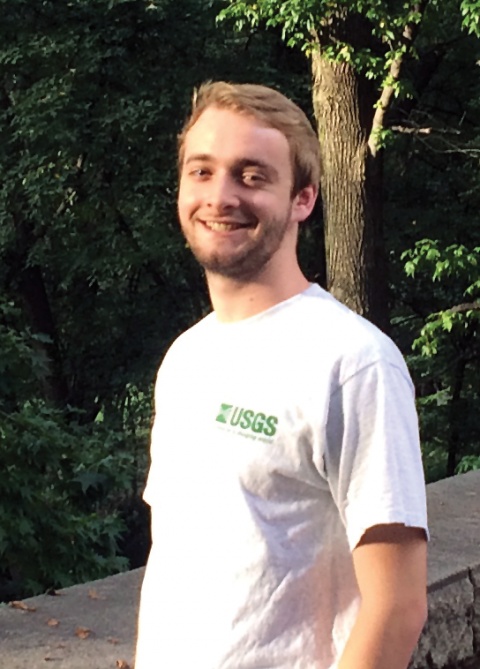
Marc Berghouse ’18
Jennie Preis, associate dean of experiential education at CCE, notes that, in addition to developing skills, gaining experience and exploring industries, students also use summer pursuits to determine “what type of organization they want to work for, what type of work environment they prefer, whether they like working on a team or working independently.”
For some students, that means pursuing what CCE calls “self-created internships,” which require greater initiative but typically allow students to design a more tailored experience. That’s how Marc Berghouse ’18 and Abigail White ’19 — both WEP grant recipients — found summer work at the U.S. Geological Survey and the Cleveland Metroparks Zoo, respectively.
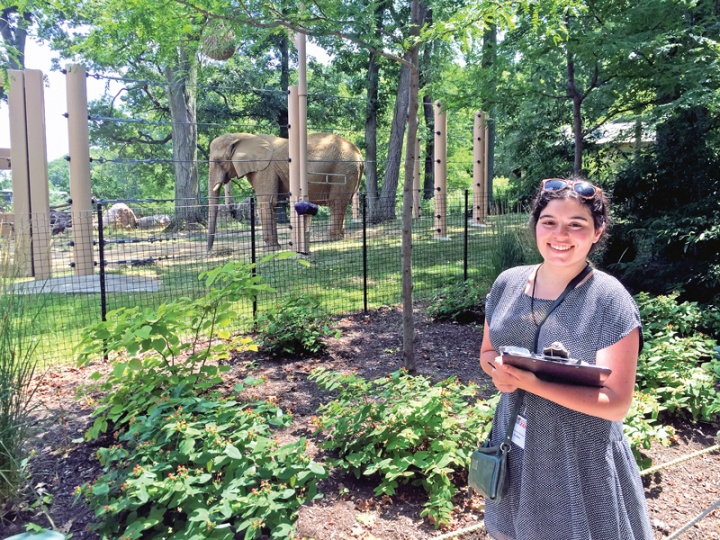
Abigail White ’19
Berghouse, who is majoring in earth and environmental sciences with a concentration in economics, wanted to learn about the work culture at USGS, but it does not offer undergraduate internships. At his request, Berghouse was allowed to work at the Pacific Coastal and Marine Science Center in Santa Cruz, Calif. There he used geographic information systems (GIS) — data analysis tools that can take years to master — and other specialized software in order to show how the western coast of Alaska has eroded since the middle of the 20st century. “Communication, planning and technical skills — those are the things I got the most out of,” says Berghouse, who is fascinated by environmental data analysis and calls GIS “an amazing tool that I’m probably going to use for the rest of my life.”
At Cleveland Metroparks Zoo, White, who has been interested in elephants since she was a child, was able to observe the park’s five elephants — both in person during the day and through footage taken of them during the night — and document their behavior. “Elephants are such sentient creatures; they really do have individual personalities,” says White. “It was really neat getting to know them.”
“Summer internships, global opportunities and research experiences are an extension of our liberal arts education.” — Dean James J. Valentini
White, who describes herself as “humanities focused” and is considering a double major in American studies and creative writing, also took on editorial projects in the conservation department.These ranged from writing content for the department’s website to creating a proposal for the Association of Zoos and Aquariums that member institutions can use to educate the public about illegal wildlife trade. She says of that work, “It feels directly helpful to this important cause.”
It is precisely that combination of discovery and real-world impact that Valentini believes makes summer experiences so valuable. “Summer internships, global opportunities and research experiences are an extension of our liberal arts education,” he says, “challenging our students to adapt to new environments, to gain exposure to different ways of thinking and helping them develop skills and learning agilities that will benefit them throughout their lives.”
When it comes to securing funding for summer experiences, College students have access to an ever-growing lineup of programs and fellowships. The Center for Career Education administers five funding programs for undergraduates pursuing unpaid or low-paying internships and research positions, four of which are open to College students. In addition to the Alumni and Parent Internship Fund and the Work Exemption Program, they are the Startup Internship Fund, a collaboration with Columbia Entrepreneurship for students interning at innovative startups, and the Scheidt Internship Fund for the Prevention of Genocide and Mass Atrocities, a gift from the Charles E. Scheidt Family Foundation to the College that supports summer internships at nonprofit and NGOs.
Other summer funding comes from undergraduate scholars programs, such as the I.I. Rabi Scholars and the Science Research Fellows. Each year, the College also awards myriad summer fellowships.
Nobuhisa and Marcia Ishizuka Global Fellowship in East Asian Studies, a summer study abroad grant launched in 2016 for students studying Japanese language and culture, or other East Asian languages and cultures, whose research and interests include Japan.
Harvey Krueger Global Experience Fellowship, a summer grant for College students to study abroad or conduct independent research in Israel or Poland.
Richmond B. Williams Traveling Fellowship, for rising juniors who are majoring in English and are undertaking a summer research project that requires foreign travel.
Edwin Robbins Academic Research and Public Service Fellowship, a stipend for political science majors conducting research or pursuing unpaid internships at government offices or agencies.
Sanford S. Parker Prize, awarded to economics majors pursuing unpaid internships that focus on research.
Solomon and Seymour Fisher American Civil Liberties Fellowship, which allows students to work in the legal department of the American Civil Liberties Union in NYC.
Richard and Brooke Kamin Rapaport Summer Music Performance Fellowship, which gives music students the chance to study at a summer festival of their choosing.
Mellon Mays Undergraduate Fellowship, which provides research training, faculty mentorship and financial support for undergraduates who plan to pursue careers in academia.
Class of 1939 Summer Research Fellowships, awarded to students who are pursuing independent research or participating in an ongoing laboratory project during the summer at a location of their choosing.
Herbert Deresiewicz Summer Research Fellowship, which supports College and Engineering students whose interest in science has been kindled by his/her experience at Columbia.
Summer Undergraduate Research Fellowship, which allows biology students to conduct hands-on laboratory research.
Nathalie Alonso ’08, from Queens, is a freelance journalist and an editorial producer for LasMayores.com, Major League Baseball’s official Spanish language website. She writes “Student Spotlight” for CCT.

Published three times a year by Columbia College for alumni, students, faculty, parents and friends.
Columbia Alumni Center
622 W. 113th St., MC 4530, 6th Fl.
New York, NY 10025
212-851-7852
cct@columbia.edu

Columbia Alumni Center
622 W. 113th St., MC 4530, 4th Fl.
New York, NY 10025
212-851-7488
ccalumni@columbia.edu